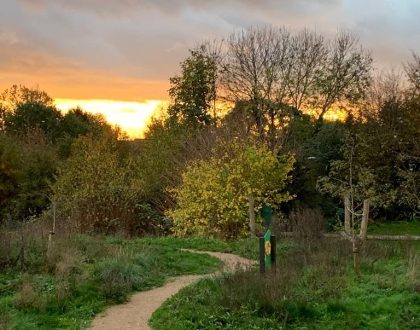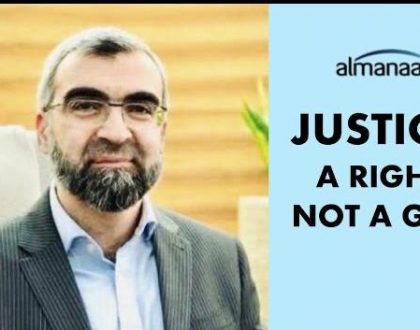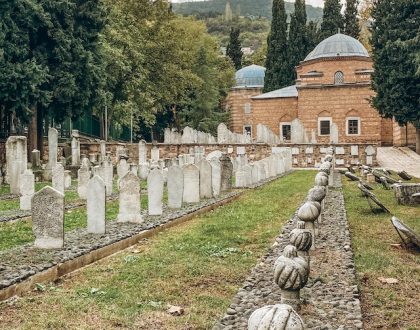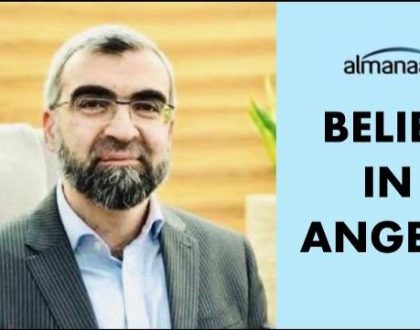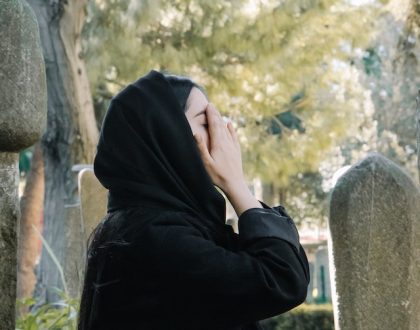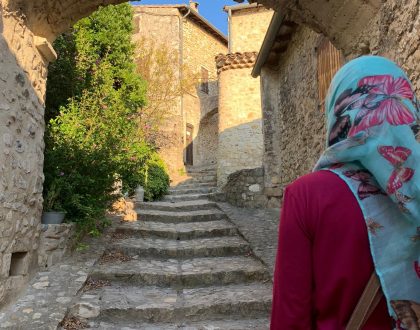To respect and look after parents and elders is a command, an act of worship and a debt
Allah Almighty said: ۞ وَقَضَىٰ رَبُّكَ أَلَّا تَعْبُدُوا إِلَّا إِيَّاهُ وَبِالْوَالِدَيْنِ إِحْسَانًا ۚ إِمَّا يَبْلُغَنَّ عِندَكَ الْكِبَرَ أَحَدُهُمَا أَوْ كِلَاهُمَا فَلَا تَقُل لَّهُمَا أُفٍّ وَلَا تَنْهَرْهُمَا وَقُل لَّهُمَا قَوْلًا كَرِيمًا Your Lord has commanded...
Read More
Ghazali on Contentment (part 2)
After Ghazali talked about the topic of mahabba (love) for Allah – the fruits of mahabba and true mahabba, and increasing our love for Allah and His Messenger, He followed it with this topic...
Read More
Justice – a right not a gift
The importance of Justice Justice is a very important principle in Islam – so much so that it is one of the main pillars, not just of Islam, but any system. If any system...
Read More
How will non-Muslims be judged?
There are differences of opinion, about how people who are not Muslim will be judged on the Day of Judgement. People often ask what will be the fate of the pygmies? In other words,...
Read More
Is it permissible to have a gravestone?
In general it is permissible to have a small structure constructed over a grave and have a gravestone to mark it. The structure should be humble and not higher than a handspan. Graves From...
Read More
Keeping pure – Ensure purity in every sphere of your life and for the future of your children
Purity was commanded from the beginning of revelation Surat al Muddaththir and Muzzammil were from the first revelations. In them, Allah addressed the Prophet (peace be upon him) and his followers, commanding sincerity and...
Read More
Belief in Angels
Belief in angels is an article of faith One of the pillars of faith is to believe in angels. We know from the very famous hadith of Jibreel, that he came to Prophet Muhammad...
Read More
Is it wrong to cry when someone passes away?
Is it wrong to cry for the deceased? The Prophet (peace be upon him) said: وَإِنَّ المَيِّتَ يُعَذَّبُ بِبُكَاءِ أَهْلِهِ عَلَيْهِ ‘Indeed the deceased is punished for the crying of his relatives over him.’...
Read More
Ghazali on Contentment with Allah’s Will (part 1)
Allah is pleased with them and they are pleased with Him In Surat al Maidah, Allah Almighty says: قَالَ ٱللَّهُ هَٰذَا يَوۡمُ يَنفَعُ ٱلصَّٰدِقِينَ صِدۡقُهُمۡۚ لَهُمۡ جَنَّٰتٞ تَجۡرِي مِن تَحۡتِهَا ٱلۡأَنۡهَٰرُ خَٰلِدِينَ فِيهَآ أَبَدٗاۖ...
Read More
Colonial condescension, hypocrisy and Islamophobia – Qatar 22
Stick to your principles Allah Almighty said in the Quran: فَاسْتَقِمْ كَمَا أُمِرْتَ وَمَن تَابَ مَعَكَ وَلَا تَطْغَوْا ۚ إِنَّهُ بِمَا تَعْمَلُونَ بَصِيرٌ So be upright, as you are commanded, along with those who...
Read More
What is the best of three options when there is backbiting?
Abu Ad-Darda (may Allah be pleased with him) narrated that the Prophet (peace be upon him) said: ‘Whoever defends his brother’s honour in his absence, Allah will protect his face from the hellfire on...
Read More
Is it possible to be competitive and ambitious while having humility?
Iyad bin Himar (may Allah be pleased with him) narrated that Allah’s Messenger (peace be upon him) said, ‘Allah, the Most High has revealed to me that you should be humble, so that no...
Read More
New formulae that challenge the mind – charity, forgiveness and humility
Abu Hurayrah (may Allah be pleased with him narrated that Allah’s Messenger (peace be upon him) said: ‘Sadaqa does not reduce (one’s) wealth; and Allah increases the honour of his who pardons (others); and...
Read More
Ghazali on love (part 3) – The pleasure of seeing Allah and the signs He loves you
This is the last part of Ghazali’s chapter on love. He already mentioned that the senses are our gateway to pleasure and we love everything that is pleasurable to our senses. However there is...
Read More
Do not let life distract you from Allah
Those who are distracted are in a state of heedlessness or hypocrisy In Surat Munafiqoon, which means Hypocrites, Allah Almighty Allah is warning us not to be like the hypocrites: يَا أَيُّهَا الَّذِينَ آمَنُوا...
Read More


